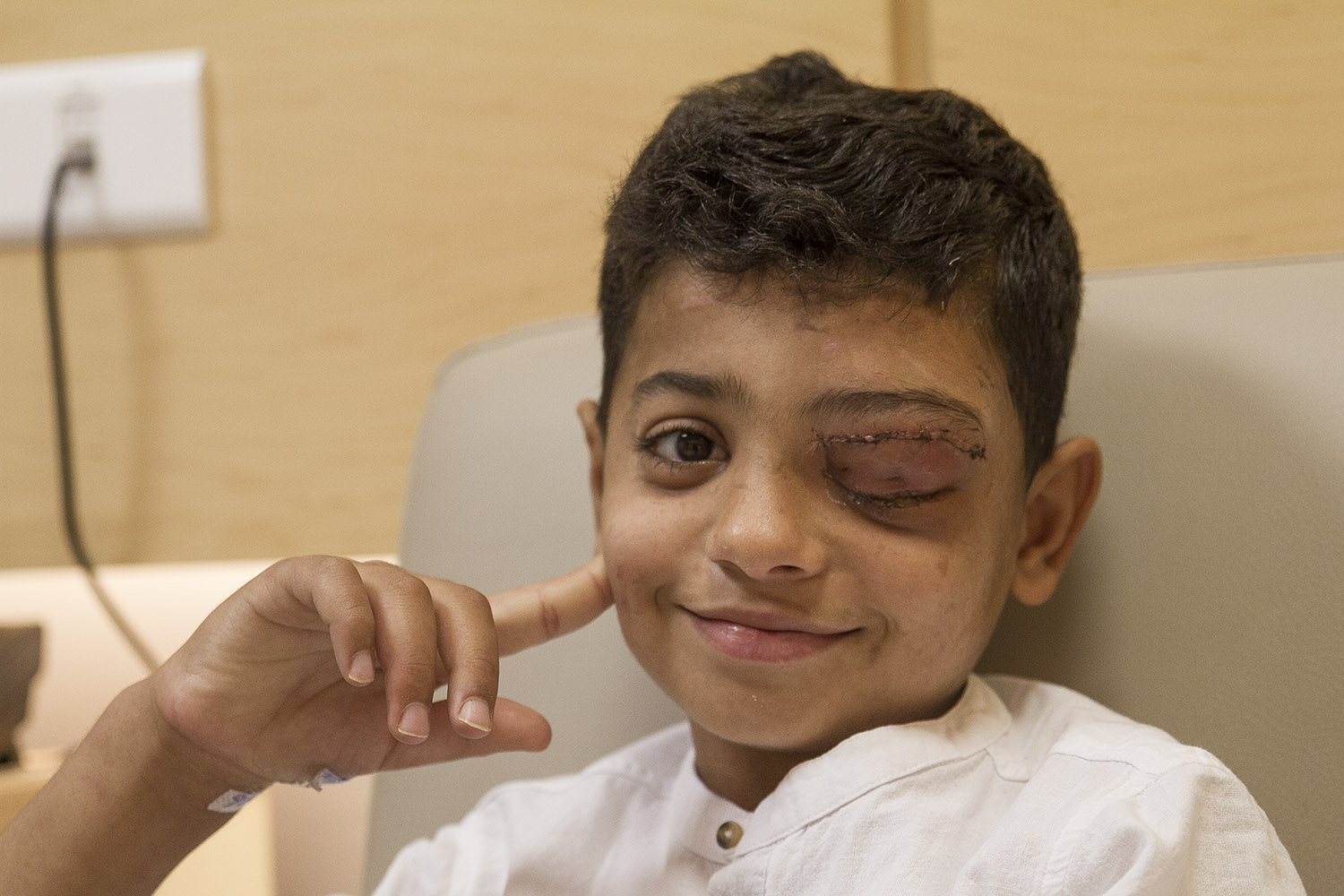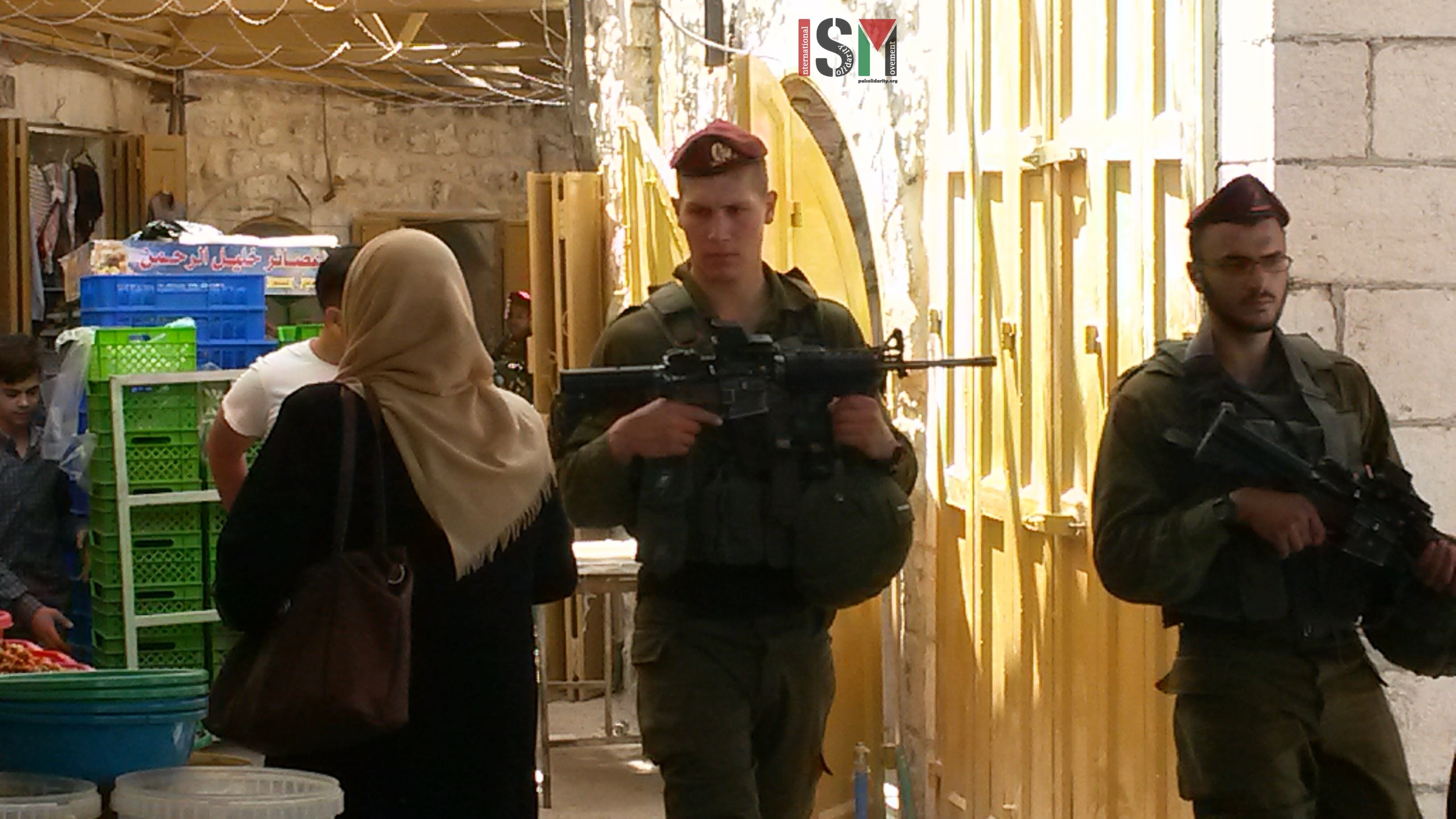Category: Journals
-
“I just want him to be a normal boy again’: Gaza family appeal for urgent help to support treatment of 11 year old Mahmoud who was shot in the face by an Israeli sniper
Mahmoud Sawalhi is an 11 year-old boy from Gaza who was shot in the head and the shoulder with live ammunition by an Israeli sniper on the 14th May Great Return March protests. A bullet passed through his eye and out of the top of his head, and he lost both his eye and…
-
‘I am here, I resist’: ISM catches up with Nisreen Azzeh, who uses her artwork to resist against the brutal Israeli occupation of her homeland
4th June 2018 | International Solidarity Movement, Al-Khalil Team | Hebron, occupied Palestine Nisreen Azzeh’s house sits high up on a hill in the Tel Rumeida area of the occupied city of Hebron (al-Khalil is the Arabic name of the city) in the south of the West Bank. The way to her house is difficult…
-
Settler tourists given weekly armed escort through the streets of Al Khalil
Every Saturday, Zionist settler tours take place in the narrow alleys of the souq in Al Khalil’s (Hebron). These guided tours usually last for about an hour, and settlers are always accompanied by armed Israeli forces, intimidating local Palestinians who are trying to make a living by selling their goods in the market. The tours…



